Present simple and present continuous past simple past continuous – Past Simple Past Continuous – разница и правила, чем отличается употребление глаголов
правило, примеры, упражнения и видеоурок
Видеоурок
Случаи использования данных времён
Рассмотрим более подробно когда используется Past Simple, а когда Past Continuous:
Past Simple — грамматическое время, которое используется для указания на законченное действие в прошлом. Обычно на это показывают слова подсказки. Например He finished school in 2002. Он закончил школу в 2002 году. Таким образом указание 2002 год — слово подсказка, требующее использования Past Simple.
Past Continuous — в данном грамматическом времени нас интересует в первую очередь продолжительный характер конкретного действия в прошлом. Зачастую это время сопровождается своими словами подсказками. Например, He was drinking tea with his friends yesterday at 5. То есть нас интересует конкретный момент в прошлом, и на это указывают специальные слова.
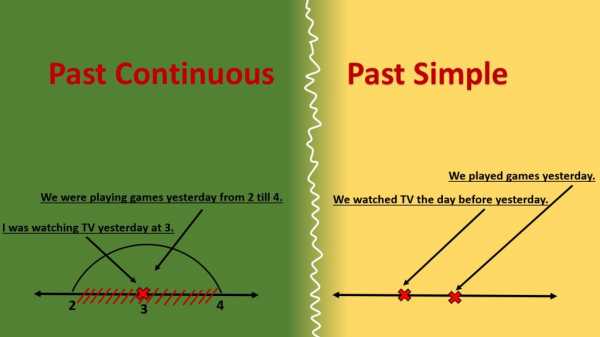
Слова-подсказки
Остановимся чуть подробнее на словах-подсказках этих двух времён.
Past Simple — yesterday, ago, last, the day before yesterday, in…(дата), on…(день). Как правило, все вышеуказанные слова подсказки используются в конце предложения. Однако, речи возможны случаи использования этих слов и в начале предложения.
Past Continuous — at…(указание на время), all day long (весь день), from…till…(с…до…). Так же как и в Past Simple слова подсказки ставятся в конце предложения, но возможно их употребление и в начале предложения.
Читайте также: слова-маркеры всех времён в английском языке
Как образуются Past Simple и Past Continuous
Past Simple
Утвердительные предложения — I started to work at shool in 2001. На первое место ставится подлежащее, далее сказуемое во второй форме (у правильных глаголов добавляется окончание ed, у неправильных учится вторая форма).
Вопросительные предложения — Did you start to work at school in 2001? На первое место ставится вспомогательный глагол Did, который не переводится никак, далее подлежащее и сказуемое в ПЕРВОЙ (начальной) форме.
Отрицательные предложения — I did not (didn’t) start to work at school in 2001. (После подлежащего ставится did not + глагол в начальной форме)
Past Continuous
Утвердительные предложения — We were having breakfast yesterday at 5. На первое место ставится подлежащее, далее to be в прошедшей форме (was/were — в зависимости от числа подлежащего. В единственном числе — was, во множественном — were.) + глагол с окончанием …ing.
Вопросительные предложения — Were you having breakfast yesterday at 5? Меняются местами глагол to be и подлежащее.
Отрицательные предложения — We were not (weren’t) having breakfast at 5. После глагола to be ставится частица not (не).
Совместное использование двух времён в одном предложении
Очень часто
Примеры из художественной литературы
A chill wind was blowing that nipped him sharply and bit with especial venom into his wounded shoulder. // Jack London «The Call Of the Wild»
She was trying to see it in a mirror behind the counter without letting the truck driver know, and so she pretended to push a bit of hair to neatness. // John Steinbeck «The Grapes Of Wrath»
The man was limping on towards this latter, as if he were the pirate come to life, and come down, and going back to hook himself up again. // Charles Dickens «Great Expectations»
Упражнения на Past Simple / Past Continuous (тест)
Читайте также:
❤ Поделись статьей с друзьями! И подпишись на email-рассылку и Twitter. ❤
MaxHeart
Максим Сердцев Автор 7 статей в этом блоге.
Меня зовут Максим. Мне 29 лет. В 2010 году закончил МГПУ (факультет английской филологии). Ещё студентом начал работать в школе. Имею опыт работы практически со всеми возрастными группами. В настоящее время время совмещаю работу и хобби — создание видео-уроков.
Посмотреть все статьи автора MaxHeart →
Личный сайт
englishgu.ru
Система изученных времен (Present Simple, Past Simple, Future Simple, Past Continuous, Present Continuous, Present Perfect)
На данном уроке мы вспомним грамматические времена (Present Simple, Past Simple, Future Simple, Past Continuous, Present Continuous, Present Perfect) и обратим внимание на разницу их употребления
В английском языке, как и в русском, действие может быть выражено в настоящем (present), прошедшем (past) и будущем (future) времени. Группы Simple, Continuous и Perfect помогают нам точно выразить, каким образом совершается действие в настоящем, прошлом и будущем. То есть, чтобы правильно выбрать грамматическую форму глагола, нужно ответить на два вопроса: когда произошло действие (When?) и как (How?).

Рис. 2 (Источник)
Времена группыSimple – это простые время, которые используются для описания фактов, привычек, повторяющихсядействий.
Если необходимо описать факты, привычки или повторяющиеся действия в настоящем, то используют Present Simple, если в прошедшем – то Past Simple, и если в будущем – то Future Simple.
Пример:
Present Simple
They go to work by bus. – Они ездят на работу на автобусе.
They do not go to work by car. – Они ездят на работу не на машине.
Do they go to work by bus? – Они ездят на работу на автобусе?
Tom goes to the gym. – Том ходит в спортзал.
Tom doesn’t go to the gym on Saturdays. – Том не ходит в спортзал по субботам.
Does he go to the gym on Sundays? – Он ходит в спортзал по воскресеньям?
London is in England. – Лондон находится в Англии.
London is not in Spain. – Лондон находится не в Испании.
Is London a big city? – Лондон большой город?
Past Simple
I visited my grandmother last Thursday. – Я навестил бабушку в прошлый четверг.
My cousin did not visit her. – Мой двоюродный брат не навещал ее.
Who did you visit last Thursday? – Кого ты навещал в прошлый четверг?
We saw a beautiful rainbow yesterday. – Мы видели вчера красивую радугу.
Pity, but I didn’t see it. – Жаль, но я не видел ее.
Where did you see it? – Где вы ее видели?
He was happy to see her. – Он был счастлив ее видеть.
He was not happy to see her. – Он не был счастлив ее видеть.
Was he happy to see her? – Был ли он счастлив ее видеть?
Future Simple
He will see his friend tomorrow. – Он увидит своего друга завтра.
He will not (won’t) see his friend tomorrow. – Он не увидит своего друга завтра.
Will he see his friend tomorrow? – Увидит ли он своего друга завтра?
They will take English lessons twice a week. – У них будут уроки английского дважды в неделю.
They will not take English lessons twice a week. – У них не будет уроков английского дважды в неделю.
Will they take English lessons twice a week? – Будут ли у них уроки английского дважды в неделю?
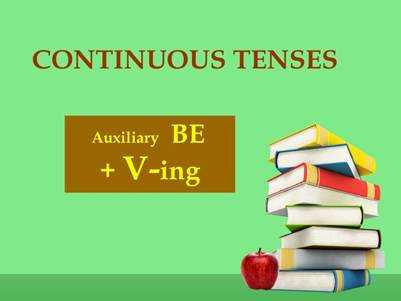
Рис. 3 (Источник)
Слово “continuous” в переводе означает «длительный», таким образом, времена группы Continuous описывают действия в процессе, которые занимают/занимали какое-то время. Если процесс происходит в настоящем, то это Present Continuous, если же он происходил в какое-то время в прошлом, то это Past
Пример:
Present Continuous
I am listening to music at the moment. – Я слушаю музыку сейчас.
I am not listening to you. – Я не слушаю тебя.
What am I listening to? – Что я слушаю?
She is reading a book now. – Она читает книгу сейчас.
She is not reading a magazine. – Она не читает журнал.
Why is she reading a book? – Почему она читает книгу?
They are writing an exercise now. – Они пишут упражнение сейчас.
They are not writing a letter. – Они не пишут письмо.
Are they writing an exercise? – Они пишут упражнение?
Past Continuous
Nelly was talking on the phone at 3 o’clock. – Нелли говорила по телефону в 3 часа.
Nelly was not talking on the phone at 5 o’clock. – Нелли не говорила по телефону в 5.
When was Nelly talking on the phone? – Когда Нелли говорила по телефону?
We were planting the trees all morning yesterday. – Мы сажали деревья все утро вчера.
We were not planting the bushes all morning yesterday. – Мы не сажали кусты все утро вчера.
Were we planting the trees all morning yesterday? – Мы сажали деревья все утро вчера?
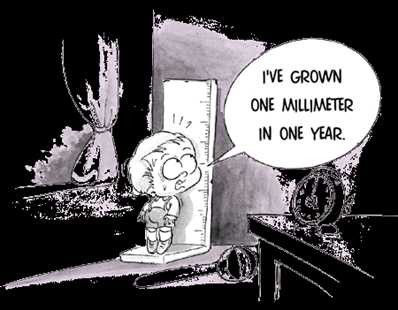
Рис. 4 (Источник)
Время Present Perfect используется, если необходимо рассказать о действии, которое было в прошлом, но результат от этого действия актуален в данный момент.
Пример:
They have seen this film. – Они видели этот фильм.
They have not seen this film. – Они не видели этот фильм.
Have they seen this film? – Они видели этот фильм?
Mary has broken my computer. – Мэри сломала мой компьютер.
Mary has not broken my mobile phone. – Мэри не сломала мой телефон.
What has Mary broken? – Что сломала Мэри?
|
Present Simple |
usually, always, often, every day, sometimes, regularly, seldom, never |
|
Past Simple |
last week, yesterday, last month, days ago, the other day, long time ago |
|
Future Simple |
soon, tomorrow, next Monday, in the future |
|
Present Continuous |
still, at the moment, at present, this minute |
|
Past Continuous |
at six o’clock yesterday, when my father came, while |
|
Present Perfect |
since, for, ever, never, just, already, yet |
Чтобы лучше понять и усвоить особенности употребления времен, рассмотренных в данном уроке, необходимо выполнить следующее упражнение.
Выберите правильную форму глагола.
- He usually goes/is going/has gone to school by bus.
- Yesterday morning I was getting up/has got up/got up at 6.30.
- What is Peter doing/does Peter do/was Peter doing now?
- Please don’t make so much noise. I was studying/am studying/studied.
- Have you heard/Did you hear/Do you hear anything from Tom since Christmas?
- Have you gone/Did you go/Are you going out last night?
- New York is/be/does one of the largest cities in the world.
- It is raining/was raining/rained now.
- John never won/has never won/was never winning a prize at a race.
- We have done/did/are doing a lot last Sunday.
- Nick worked/has worked/was working hard all day yesterday.
- I did not find/was not finding/have not found my ring yet.
- They have built/build/will build this house next summer.
- Tom was playing/played/has played tennis when Ann called him.
Ответы к упражнению:
- goes
- got up
- is Peter doing
- am studying
- have you heard
- Did you go
- is
- is raining
- has never won
- did
- was working
- have not found
- will build
- was playing
Список литературы
- Афанасьева О. В. Серия «Новый курс английского языка для российских школ». 5 класс. – М: Дрофа, 2008.
- Фомина И. Н., Фомина Л. В. Английский язык в алгоритмах. – Днепропетровск, 2007.
- Пахотин А. Всё о модальных глаголах и сослагательном наклонении в английском языке. – М: Издатель Карева, 2005.
- Дубровин М. И. Иллюстрированный путеводитель по английской грамматике. – М: «Начала-Пресс», 1992.
Домашнее задание
- Упр. 227 Голицынский Ю. Грамматика: Сб. упражнений. – 5-е изд., – СПб.: КАРО, 2005. – С. 183.
- Упр. 228 Голицынский Ю. Грамматика: Сб. упражнений. – 5-е изд., – СПб.: КАРО, 2005. – С. 185.
- Переведите на английский язык, употребляя глаголы вPresent Simple, Past Simple, Future Simple, Past Continuous, Present Continuous, Present Perfect:
а) Я никогда не видел такого толстого кота!
б) Послушай! Кто-то играет на скрипке.
в) Где вы проводите каникулы?
г) Я вчера не ел суп.
д) Позавчера я весь день смотрел сериалы.
е) Они навестят нас следующей весной.
ж) Ты когда-то был в Японии?
Дополнительные рекомендованные ссылки на ресурсы сети Интернет
- Интернет-портал Serge-flamel.narod.ru (Источник).
- Интернет-портал Study-languages-online.com (Источник).
- Интернет-портал Native-english.ru (Источник).
interneturok.ru
Past Simple и Past Continuous — упражнения
Сегодняшний материал посвящен отработке двух прошедших времен – Past Simple и Past Continuous.
Если Вы забыли, что это за времена, повторить можно здесь:
На сайте также есть упражнения отдельно по каждому из данных времен:
Готовы? Давайте приступать.
Past Simple vs. Past Continuous Exercises.
Упражнение 1. Choose the correct verb form (Past Simple or Past Continuous) to complete the sentences.
- The film was rubbish, so we left / were leaving the cinema and went / were going to the cybercafé.
- I didn’t like / wasn’t liking the program we watched / were watching, so I turned / was turning off the TV.
- Dave rang / was ringing me while I did / was doing my homework.
- As I fell / was falling asleep, I heard/was hearing a strange noise.
- I dropped / was dropping my keys while I ran / was running for the bus.
- The competition judges didn’t know / weren’t knowing whose food they tasted / were tasting.
Упражнение 2. Complete the email with the Past Simple or Past Continuous of these verbs. You will need to use some verbs more than once.
Decide / get / give / go / happen / not hurt / play / try / want |
Last weekend Ben and I visited that new leisure center that everyone is talking about. We 1) ___________ to the ice-skating rink first. Ben slipped a few times while he 2) ___________ to do acrobatic tricks, but luckily he 3) ___________ himself. After that, we went to the main hall to see what 4) __________ there. On one side of the hall a rock band 5) __________ while on the other side some skateboarders 6) ____________ a display. The Skateboarders were fantastic so we 7) ___________ to stay and watch them.
After the exhibition, we both 8) __________ to go to the shops inside the center. But it was nearly rush hour and the shops 9) ___________ really crowded so we 10) ____________ to the multiplex cinema to see The Illusionist. What a fantastic film!
Упражнение 3. Match the beginnings (1-7) with the endings (a-g). Then complete the sentences with the past simple or past continuous of the verbs in brackets.
1. He ___________ (climb) down the side of a building 2. The sun _________ (shine) brightly 3. The hot water tank _________ (explode) 4. When we _________ (get) to the concert 5. I _________ (not know) that my friends 6. While you _________ (lie) on the beach 7. Last year, Simon _________ (give up) painting | a) while I __________ (have) a shower. b) the band ___________ (play) my favourite song. c) when suddenly the rope _________ (break). d) and __________ (take up) sculpture instead. e) ___________ (prepare) a surprise party for me. f) when I __________ (get up) this morning. g) we ___________ (study) for our exams! |
Упражнение 4. Вставьте Past Simple или Past Continuous
- An amazing display of traditional-style canoes ____ last week in Portland (to open).
- Last month, we ________ the most amazing opportunity to head down to Nashville (to have).
- These ladies__________ an apartment when they ____ both _______ English in Jakarta, Indonesia (to share, to teach).
- Last year we________ too tired even to make quality home design (to be).
- While the tourists __________ at the beach, animators __________ coffee in the bar (to dance, to have).
- Last time there ________ a snowfall in November in 2016 (to be).
- A Qatari sheikh ________ more than £1billion on his art collection last year (to spend).
- The hot-blooded and furious Tybalt ________ a grudge against Romeo (to bear).
- While we __________ to a dive site we __________ the advantages of Utila, the smallest and most unspoiled of the Bay Islands of Honduras (to boat, to discuss).
- In the late 1600s, the British ________ all non-English ships from trading with colonies (to forbid).
- We ________ busy building our new country house that year (to be).
- Our friend’s dog __________ us as we__________ around the neighborhood (to follow, to walk).
- The student __________ up the escalator while it __________ (to run, to move).
Ответы к упражнениям.
Exercise 1.
1 — Left / went, 2 — didn’t like / were watching / turned, 3 – rang / was doing, 4 — was falling / heard, 5-dropped / was running, 6 — didn’t know / were tasting
Exercise 2. 1.went 2.was trying 3.didn’t hurt 4.was happening 5.was playing 6.were giving 7.decided 8.wanted 9.were getting 10.went
Exercise 3.
1C — was climbing, broke
2G — was shining, got up
3A — exploded, was having
4B – got, was/were playing
5E – didn’t know, were preparing
6G – were lying, were studying
7D – gave up, took up
Exercise 4.
1 opened, 2 had, 3 were sharing / were teaching, 4 were, 5 were dancing / were having, 6 was, 7 spent, 8 bore, 9 were boating / were discussing, 10 forbade, 11 were, 12 was following /were walking, 13 was running / was moving
Понравилось? Сохраните на будущее и поделитесь с друзьями!
grammar-tei.com
Past Simple, Past Continuous: правила и примеры
Небольшими, но уверенными шагами мы с вами изучаем английские времена! Не всё так и сложно, как казалось, главное чуть-чуть терпения и уверенности в своей неотразимости 🙂 Сегодня на повестке дня: Past Simple (Indefinite) и Past Continuous — группы времен из прошлого. Это одни из основных времен, поэтому отнеситесь к их изучению серьезно. Ну что вперёд!
Прошедшее время — Past Simple (Past Indefinite)
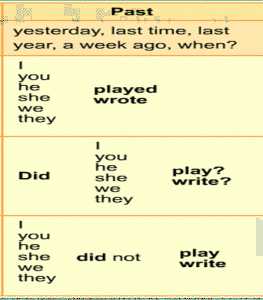 Правило образования:
Правило образования:
«+» утверждение: к глаголу прибавляем окончание -ed (если это правильный глагол), если же неправильный — 2 форма глагола.
«-» отрицание: didn’t + глагол (инфинитив)
«?» вопрос: did + … + глагол (инфинитив)
Когда употребляется?
- Обозначает что-то характерное в прошлом
When a boy he played tennis for the Youth League.
- Используется со словами часто, редко, никогда (имеем в виду действие в прошлом)
In winter he never (always, usually) played snowballs.
Past Indefinite обозначает действие в прошлом, которое не связано с настоящим.
- Когда речь идёт об историческом событии, или мы говорим об умершем человеке (здесь не может быть Present Perfect)
Past Simple обозначает действие, которое произошло в точно указанный момент прошлого времени. Может задать вопрос КОГДА? (WHEN?)
 Индикаторы
Индикаторы
- last week, last year, last month, last day
- two (three, five) days ago
- the day before yesterday (позавчера)
- the other day (в один из прошедших дней)
- in May (August, November)
- on the 7th of December
- in 1997
- in the 16th century
- when he came
- while he was travelling in Amsterdam…
- once I bought this car
Прошедшее время — Past Continuous
Обозначает действие, которое протекало в определённый момент или ограниченный промежуток времени в прошлом.
I was sitting all day yesterday.
 Правило образования
Правило образования
was / were + глагол с —ing окончанием
Индикаторы
- all day yesterday
- the whole day
- from 7 to 9
- at this time
- when they arrived
- while they were playing the piano
Как расставить времена в предложении с when, while, as в ситуации прошедшего времени?
Смотри, действия в двух частях одновременные или последовательные?
- ПОСЛЕДОВАТЕЛЬНЫЕ
Past Indefinite — Past Indefinite
Пример:
When he locked the door, he remembered that…
- ОДНОВРЕМЕННЫЕ
Необходимо решить, какое действие носило длительный характер (Past Continuous), а какое краткий характер (Past Indefinite)
Примеры:
He was typing the article, she was writing the thesis. — Оба действия носят длительный характер
When they were having lunch, his sister phoned from Mexico. — 1 действие носит длительный характер, 2 — краткий характер!
О временах группы Present можно прочесть в предыдущей статье.
engunits.ru
Past Continuous — упражнения с ответами для начинающих

Exercise 1. Составьте предложения в the Past Continuous Tense.
- I/to go home/at 4 o’clock yesterday.
- We/to play basketball/at 6 o’clock last Sunday.
- She/to talk with her friend/for forty minutes yesterday.
- You/to wash the window/in the afternoon yesterday.
- Nick/to ride his bike/all the evening.
- Sheila and Dora/to wait for a bus/for half an hour.
- They/to prepare for the party/all day yesterday.
- I/to learn the poem/for an hour.
- Dick/to paint the walls in his room/from 2 to 6 o’clock last Wednesday.
- Eve and Tony/to skate/all day last Saturday.
Answers: 1. I was going home at 4 o’clock yesterday. 2. We were playing basketball at 6 o’clock last Sunday. 3.She was talking with her friend for forty minutes yesterday. 4.You were washing the window in the afternoon yesterday. 5. Nick was riding his bike all the evening. 6. Sheila and Dora were waiting for a bus for half an hour. 7. They were preparing for the party all day yesterday. 8. I was learning the poem for an hour. 9. Dick was painting the walls in his room from 2 to 6 o’clock last Wednesday. 10. Eve and Tony were skating all day last Saturday.
Exercise 2. Поставьте глаголы в скобках в правильную форму.

- Alison … (to have) lunch at two o’clock yesterday.
- Edward and Henry … (to play) the guitar all the evening.
- Ben … (to run) in the park in the morning yesterday.
- I … (to speak) to the manager from three to half past five last Thursday.
- My grandparents … (to drive) to Poltava at this time yesterday.
- Lucy … (to iron) clothes from 4 to 6 o’clock last Saturday.
- You … (to sleep) for three hours in the afternoon.
- Julia … (to listen) to news at this time yesterday.
- My mother … (to dust) the furniture when I came home yesterday.
- We … (to play) on the playground all day last Sunday.
Answers: 1. was having; 2. were playing; 3. was running; 4. was speaking; 5. were driving; 6. was ironing; 7. were sleeping; 8. was listening;
9. was dusting; 10. were playing.
Exercise 3. Выберите правильный вариант ответа.
Указатели времени, которые используются с прошедшим длительным временем: when, while, as.
While используется, когда два действия происходият одновременно:
While he was playing computer games his sister was speaking on the phone. Когда он играл в компьютерные игры, его сестра разговаривала по телефону,
When и as употребляются, если одно действие в предложении было прервано другим действием:
The children were singing when (as) their parents entered the classroom. Дети пели, когда их родители вошли в класс.
- I was brushing my teeth when/while my sister was making tea.
- He was riding a horse when/while the car drove to the stable.
- Sue was walking along the path as/while it started to rain.
- You were washing the dishes as/while I was drying them.
- Kate was speaking to the doctor when/while her mobile telephone rang.
- We were discussing the film as/while Mary was looking through some magazines.
- The waiter was carrying the tray when/while he dropped a glass.
- Sam was crossing the road when/while he saw his friend at the bus stop.
- Lin and Wendy were preparing for the test as/while the postman knocked at the door.
- The child was eating soup when/while his mother was making salad.
Answers: 1. while; 2.when; 3. as; 4. while; 5. when; 6. while; 7. when; 8. when; 9. as; 10. while.
Exercise 4. Дополните предложения when или while.

- The boys were playing football… the ball flew into the window.
- Ronny was painting the fence … the bucket of paint turned over.
- Denny was putting a tent… the girls were gathering wood for fire.
- Rita was sleeping … the alarm-clock rang.
- Nelly was peeling potatoes … her sister was cutting chicken into pieces.
- Nigel was skiing … he fell down and broke his leg.
- They were arguing … Mrs Elliot entered the room.
- … my mother was watching her favourite show on TV, father was making coffee.
- She was typing a letter … she found some mistakes.
- They were driving towards the village … it started to snow.
Answers: 1. when; 2.when; 3. while; 4. when; 5. while; 6.when; 7.when; 8. while; 9. when; 10. when.
Exercise 5. Сделайте предложения отрицательными.
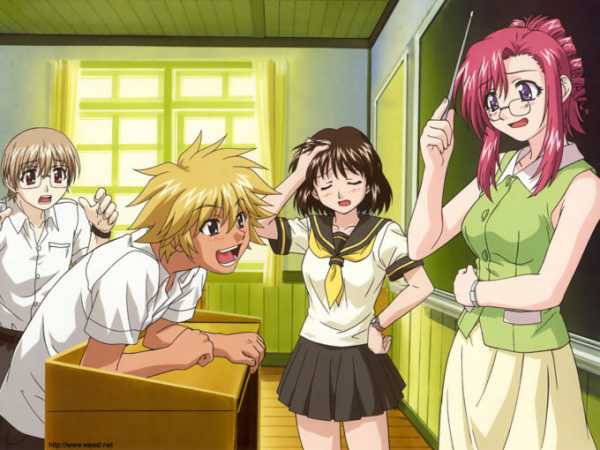
- The teacher was explaining the exercise to the pupils.
- Amanda was travelling around Africa at that time.
- We were having a Music lesson at ten o’clock yesterday.
- I was doing the shopping yesterday.
- Martin was visiting his aunt at this time yesterday.
- The girls were preparing for the concert.
- They were flying to Wales at 6 o’clock yesterday.
- It was raining hard all day last Tuesday.
- Mike and Jess were walking in the park last evening.
- He was choosing the books in the library then.
Answers: 1. The teacher wasn’t explaining the exercise to the pupils. 2. Amanda wasn’t travelling around Africa at that time. 3. We weren’t having a Music lesson at ten o’clock yesterday. 4. I wasn’t doing the shopping yesterday. 5. Martin wasn’t visiting his aunt at this time yesterday. 6.The girls weren’t preparing for the concert. 7. They weren’t flying to Wales at 6 o’clock yesterday. 8. It wasn’t raining hard all day last Tuesday. 9. Mike and Jess weren’t walking in the park last evening. 10. He wasn’t choosing the books in the library then.
Exercise 6. Составьте предложения, используя слова в скобках в the Past Continuous Tense.
Example: He wasn’t reading the newspaper, (magazine) +
He wasn’t reading the newspaper, he was reading a magazine.
We were looking for apples, (bananas) — We were looking for apples, we weren’t looking for bananas.

- Angela wasn’t singing a song, (dance) +
- I was cooking potatoes, (fish) —
- The boys were watching a film, (the news) —
- My mother wasn’t washing the dishes, (iron the clothes) +
- He was building the house, (garage) —
- They were gathering berries, (mushrooms) —
- You weren’t listening to music, (read the book) +
- Ben was repairing his bike, (his car) —
Answers: 1. Angela wasn’t singing a song, she was dancing. 2. I was cooking potatoes, I wasn’t cooking fish. 3. The boys were watching a film, they weren’t watching the news. 4.My mother wasn’t washing the dishes, she was ironing the clothes. 5. He was building the house, he wasn’t building the garage. 6.They were gathering berries, they weren’t gathering mushrooms. 7. You weren’t listening to music, you were reading the book. 8. Ben was repairing his bike, he wasn’t repairing his car.
Exercise 7. Поставьте глаголы в скобках в правильную форму.

- You … (not to listen) to the radio, you … (to read) the letter from your niece.
- Clara … (to take) a bath at nine o’clock yesterday evening.
- Monica and her friend … (to have) coffee in the sitting-room.
- Our Granny … (not to plant) tomatoes in the garden.
- Dick … (to carry) his bag towards the hotel room.
- Sally and Frank … (not to decorate) the classroom, they … (to prepare) a wall newspaper.
- The professor … (to give) a lecture but some students … (not to listen) to him.
- The nurse … (not to take) his temperature, she … (to give) him an aspirin.
- The train … (to arrive) at the station at seven o’clock.
- Olga … (not to wait) for us yesterday evening.
Answers: 1. weren’t listening, were reading; 2. was taking; 3. were having; 4. wasn’t planting; 5. was carrying; 6. weren’t decorating, were preparing; 7. was giving, weren’t listening; 8. wasn’t taking, was giving; 9. was arriving; 10. wasn’t waiting.
Exercise 8. Поставьте глаголы в скобках в правильную форму и прочитайте шутку.
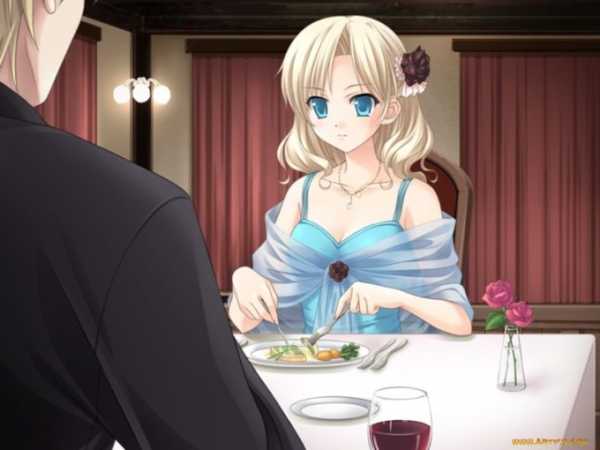
A man and his wife had a small cafe near the station. The cafe often stayed open until after midnight, because people came to eat and drink there while they … (to wait) for trains.
It was midnight one day and all the people left the cafe except one man. That man … (not to eat), and … (not to drink). He … (to sleep). The owner of the cafe and his wife were very tired. The wife looked at the man several times, but he still … (to sleep). When it was three o’clock in the morning the wife came up to her husband and said, «You have woken this man six times now, Robert, but he didn’t leave. Why haven’t you sent him away? It’s very late».
«Oh, no, I don’t want to send him away», answered her husband with a smile. «You see, every time I wake him up, he asks for his bill, and when I bring it to him, he pays it. Then he goes to sleep again».
Answers: The cafe often stayed open until after midnight, because people came to eat and drink there while they were waiting for trains. That man wasn’t eating, and wasn’t drinking. He was sleeping. The wife looked at the man several times, but he still was sleeping.
Exercise 9. Сделайте предложения вопросительными.

- We were having lunch in the canteen.
- She was singing a lovely song.
- You were speaking to your boss.
- George was sitting in the armchair by the fireplace.
- Jane and Margaret were going to the airport.
- The baby was crying.
- It was getting dark.
- We were waiting for my cousin.
- The woman was watching the children on the playground.
- The tourists were taking photos in front of the palace.
Answers: 1. Were we having lunch in the canteen? 2.Was she singing a lovely song? 3. Were you speaking to your boss? 4.Was George sitting in the armchair by the fireplace? 5. Were Jane and Margaret going to the airport? 6.Was the baby crying? 7. Was it getting dark? 8. Were we waiting for my cousin? 9. Was the woman watching the children on the playground? 10.Were the tourists taking photos in front of the palace?
Exercise 10. Составьте предложения, используя the Past Continuous Tense.
- A man/to fish/on the bank of the river.
- They/to make notes/during the lecture?
- She/not to smile/any more.
- Polly/and her cousin/to have tea.
- You/to dig/in the garden?
- Mike/to hang/a picture in the living-room.
- Sue/not to swim/in the swimming-pool.
- They/to wait/for the doctor?
- I/not to look/at the actors.
- She/to speak/in a friendly way.
Answers: 1. A man was fishing on the bank of the river. 2. Were they making notes during the lecture? 3. She wasn’t smiling any more. 4. Polly and her cousin were having tea. 5. Were you digging in the garden? 6. Mike was hanging a picture in the living-room. 7. Sue wasn’t swimming in the swimming-pool. 8. Were they waiting for the doctor? 9. I wasn’t looking at the actors. 10. She was speaking in a friendly way.
Exercise 11. Поставьте глаголы в скобках в правильную форму.

- … you … (to wash) the clothes at 4 o’clock yesterday? — No, I …. I … (to tidy) my room at that time.
- … Lucy … (to do) the shopping when you met her? — Yes, she … .
- … they … (to translate) the text in the afternoon? — No, they …. They … (to prepare) for the Maths test.
- … Alison and Rita … (to sit) in a cafe at three o’clock? — Yes, they … . They … (to eat) ice cream.
- … Steve … (to play) computer games all the evening? — No, he …. He … (to do) his homework.
- … Barbara … (to sunbathe) in the morning yesterday? — Yes, she ….
- … the children … (to help) their grandparents yesterday? — Yes, they … . They … (to gather) fruit in the garden.
- … you … (to sleep) at four o’clock yesterday? — Yes, I … .
- … Phil … (to speak) to the receptionist when you came into the hall of the hotel? — No, he …. He … (to have) breakfast in the cafe.
- … you (to pack) your luggage when the taxi arrived? — No, I … .
Answers: 1.Were you washing the clothes at 4 o’clock yesterday? — No, I wasn’t. I was tidying my room at that time. 2. Was Lucy doing the shopping when you met her? — Yes, she was. 3. Were they translating the text in the afternoon? — No, they weren’t. They were preparing for the Maths test. 4. Were Alison and Rita sitting in a cafe at three o’clock? — Yes, they were. They were eating ice cream. 5. Was Steve playing computer games all the evening? — No, he wasn’t. He was doing his homework. 6. Was Barbara sunbathing in the morning yesterday? — Yes, she was. 7. Were the children helping their grandparents yesterday? — Yes, they were. They were gathering fruit in the garden. 8. Were you sleeping at four o’clock yesterday? — Yes, I was. 9. Was Phil speaking to the receptionist when you came into the hall of the hotel? — No, he wasn’t. He was having breakfast in the cafe. 10. Were you packing your luggage when the taxi arrived? — No, I wasn’t.
Exercise 12. Напишите вопросы к предложениям, используя вопросительные слова в скобках.
Состовляя специальные вопросы в прошедшим длительном времени , слова распологают в таком порядке:
вопросительное слово (Wh-word), вспомогательный глагол was/were, подлежащее, сказуемое (с окончанием -іng).
Wh-word + was + l/he/she/it + Ving?
Wh-word + were + you/we/fhey + Ving?
Например:
Where was she going yesterday? Куда она шла вчера?
What were you doing at 5 o’clock yesterday? Что ты делал вчера в 5 часов?
Вопрос к подлежащему образуется с помощью вспмогательного глагола was:Who was cooking dinner yesterday? Кто готовил обед вчера?

- She was visiting her dentist at two o’clock yesterday. (What to do? When?)
- They were having an English lesson at ten o’clock last Monday. (Who? What lesson?)
- We were driving towards the village yesterday evening. (Where? When?)
- He was painting the roof of the garage last Saturday. (What? When?)
- You were waiting for your brother at the bus stop. (Whom? What to do?)
- My aunt was speaking to the shop- assistant in the supermarket. (Whose? Where?)
- We were walking quickly because of the rain. (How? Why?)
- The dog was barking in the yard. {What to do? Where?)
- They were sunbathing on the beach. (Who? Where?)
- She was painting a picture in her room. (What? What to do?)
Answers: 1. What was she doing at two o’clock yesterday? When was she visiting her dentist? 2. Who was having an English lesson at ten o’clock last Monday? What lesson were they having at ten o’clock last Monday? 3. Where were we driving yesterday evening? When were we driving towards the village? 4.What was he painting last Saturday? When was he painting the roof of the garage? 5. Whom were you waiting for at the bus stop? What were you doing at the bus stop? 6. Whose aunt was speaking to the shop-assistant in the supermarket? Where was my aunt speaking to the shop assistant? 7. How were we walking? Why were we walking quickly? 8. What was the dog doing in the yard? Where was the dog barking? 9. Who was sunbathing on the beach? Where were they sunbathing? 10. What was she painting in her room? What was she doing in her room?
Exercise 13. Составьте вопрос к выделенным словосочетаниям.

- The girls were playing tennis in the tennis court.
- The cat was sleeping on the sofa.
- We were crossing the street at the traffic light.
- He was explaining the task to his brother.
- The woman was walking slowly along the road.
Answers: 1. Who was playing tennis in the tennis court? What were the girls playing in the tennis court? Where were the girls playing tennis? 2. What was the cat doing on the sofa? Where was the cat sleeping? 3. Who was crossing the street at the traffic light? What were we crossing at the traffic light? 4.What was he explaining to his brother? Whom was he explaining the task to? 5. How was the woman walking along the road? Where was the woman walking slowly?
Exercise 14. Поставьте глаголы в скобках в правильную форму.

- Where … you … (to go) yesterday evening? — I … (to go) to the railway station to meet my uncle.
- Where … your sister … (to shop) yesterday morning? — Well, she … (to shop) in a new shopping centre all day yesterday.
- How long … they … (to prepare) for the test last Sunday? — They … (to prepare) for the test from 2 to 6 o’clock.
- What book … he … (to read) at five o’clock yesterday? — He … (not to read). He … (to translate) a short story for his French lesson.
- What … Dick … (to do) yesterday evening? — He … (to play) a new computer game all the evening.
- Why … Chris and Sam … (to laugh) so loudly? — Because they … (to watch) a comedy film.
- Who … (to sing) that nice song when we came into the hall? — My friend … (to sing).
- Why … you … (to bake) a cake yesterday morning? — Because I… (to wait) for the guests.
- Whom … she … (to speak) to when I met her? — She … (to speak) to her coach.
- Whose car … Bill … (o drive) yesterday? — He … (to drive) his cousin’s car.
Answers: 1. Where were you going yesterday evening? — I was going to the railway station to meet my uncle. 2. Where was your sister shopping yesterday morning? — Well, she was shopping in a new shopping centre all day yesterday. 3. How long were they preparing for the test last Sunday? — They were preparing for the test from 2 to 6 o’clock. 4. What book was he reading at five o’clock yesterday? — He wasn’t reading. He was translating a short story for his French lesson. 5. What was Dick doing yesterday evening? — He was playing a new computer game all the evening. 6. Why were Chris and Sam laughing so loudly? — Because they were watching a comedy film. 7. Who was singing that nice song when we came into the hall? — My friend was singing. 8. Why were you baking a cake yesterday morning? — Because I was waiting for the guests. 9. Whom was she speaking to when I met her? — She was speaking to her coach. 10.Whose car was Bill driving yesterday? — He was driving his cousin’s car.
Exercise 15. Переведите на английский язык.
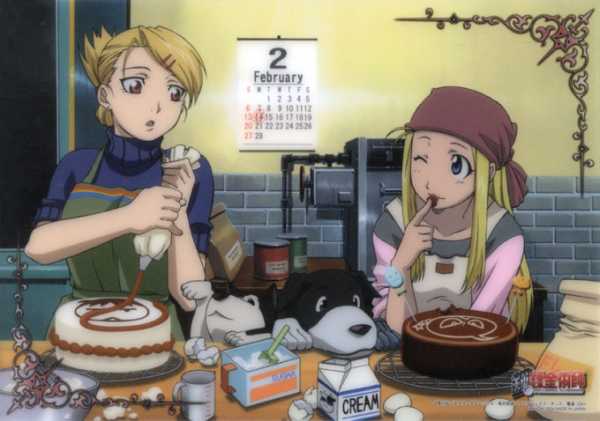
- Что вы делала вчера в пять часов? — Мы готовили ужин и ждали гостей.
- Куда она шла вчера утром? — Она шла к стоматологу.
- Какой фильм твой брат смотрел вчера в кинотеатре? — Он смотрел новый фильм ужасов.
- Где она ждала меня? — Она ждала нас возле театра.
- Какую статью вы читали вчера? — Я читал статью о новейших научных открытиях.
- Почему он вел машину так быстро? — Он спешил на вокзал.
- Когда Том плавал в бассейне вчера? — Он плавал с четырех до пяти часов.
- Что твой брат делал вчера утром? — Он ремонтировал велосипед вчера утром.
- С кем Анна разговаривала вчера в 2 часа? — Она разговаривала с секретарем.
- Что дети делали вчера после уроков? — Они готовились к спортивным соревнованиям.
Answers: 1. What were you doing at five o’clock yesterday? — We were cooking supper and waiting for guests. 2. Where was she going yesterday morning? — She was going to the dentist. 3. What film was your brother watching in the cinema yesterday? — He was watching a new horror film. 4. Where was she waiting for me? — She was waiting for you near the theatre. 5.What article were you reading yesterday? — I was reading an article about the latest scientific discoveries. 6. Why was he driving so fast? — He was hurrying to the railway station. 7. When was Tom swimming in the swimming- pool yesterday? — He was swimming from four to five. 8. What was your brother doing yesterday morning? — He was repairing a bike yesterday morning. 9. Who was Anna speaking to at two o’clock yesterday? — She was speaking to a secretary. 10.What were the children doing after the lessons yesterday? — They were preparing for the sport competitions.
WELL DONE!

Литература:
Павличенко О.М. Английский язык. Грамматический практикум. II уровень. — 2-е изд., испр. и доп. — X.: Ранок, 2012. — 304 с.
Загрузка…engfairy.com


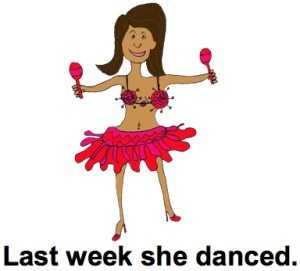 Индикаторы
Индикаторы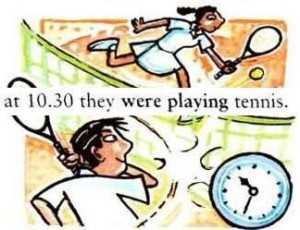 Правило образования
Правило образования